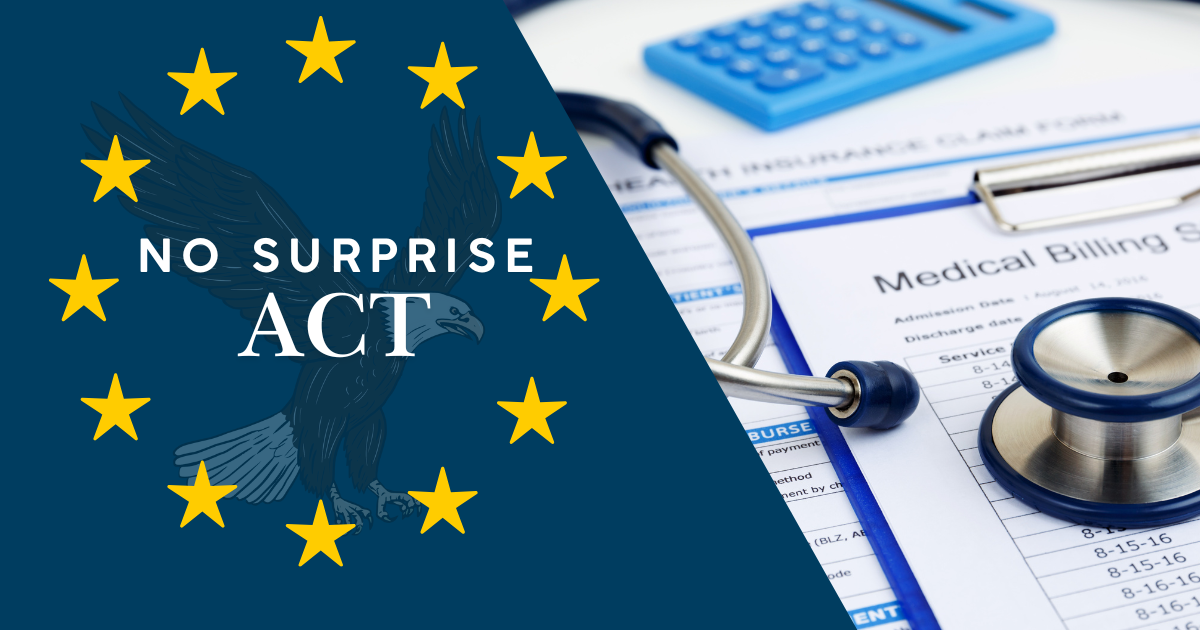No Surprises Act – How does It Affect Your Therapy Practice
The No Surprises Act protects patients from unexpected medical bills. Therapy practices need to understand its key provisions, including rules on balance billing, good faith estimates, and patient disclosures. Stay compliant and avoid surprises in billing for emergency and non-emergency services in your clinic.

As a therapy clinic owner, navigating the ever-changing rules and regulations of CMS can be daunting. With HelloNote’s comprehensive practice management tools, you can stay on top of compliance requirements, including the new No Surprises Act, and focus on running your therapy practice with confidence.
What is the No Surprises Act?
Ironically called the No Surprises Act, these rulings were one of the biggest surprises to therapists and assistants in 2021. In July 2021, “The Requirements Related to Surprise Billing Part 1” and then on September 30, 2021, “The Requirements Related to Surprise Billing: Part II” were released by the Department of Health and Human Services (HHS), the Department of Labor, and the Department of the Treasury (collectively, the Departments), along with the Office of Personnel Management (OPM).
- Part I was created to “restrict surprise billing for patients in job-based and individual health plans who get emergency care, non-emergency care from out-of-network providers at in-network facilities, and air ambulance services from out-of-network providers,” according to CMS. The purpose of this rule is to help patients understand the costs of medical care upfront.
- Part II provided additional rules and protections to prevent surprise medical billing, including:
- A dispute resolution process for out-of-network payment amounts
- The requirement for good faith estimates of medical services and items
- A way to appeal certain decisions
On November 17, 2021, a third rule was issued, called the “Prescription Drug and Health Care Spending” rule, which implements new requirements for group health plans and issuers to submit certain information about prescription drug and health care spending.
It is important to note that you have until January 1, 2022, to comply with these new rulings, so if you are reading this, it’s crucial to digest and take action to stay in compliance.
Key Exemptions
The No Surprises Act does not apply to federal programs such as Medicare, Medicaid, Indian Health Services, Veterans Affairs Health Care, or TRICARE as these programs have other protections against high medical bills.
What Do You Need to Know as a Therapy Clinic Owner?
As a therapy clinic owner, it’s important to understand the key provisions of the No Surprises Act that directly affect your practice. While rules on emergency medicine and air ambulances are excluded, here’s what is most relevant to physical, occupational, or speech therapy practices:
- No balance billing for out-of-network emergency services:
- You cannot bill patients who received emergency services at a hospital or an independent freestanding emergency department for amounts greater than the in-network cost-sharing requirement.
- No balance billing for non-emergency services by nonparticipating providers:
- You cannot bill patients for non-emergency services at participating healthcare facilities by nonparticipating providers for amounts greater than the in-network cost-sharing requirement unless proper notice and consent requirements are met.
- Disclose patient protections against balance billing:
- Providers must disclose the balance billing protections to patients and explain how to report violations. This must be done on your website, within your facility, and in a timely manner.
- Provide a good faith estimate of expected charges:
- If a patient is uninsured or self-paying, you must provide a good faith estimate of the expected charges in advance of scheduled services or upon request. This estimate should include charges for services expected to be provided alongside the primary service.
- Ensure continuity of care when a provider’s network status changes:
- If a provider’s network status changes, you must inform the patient, provide them with a good faith estimate of expected charges, and include details like expected services and diagnostic codes.
How to Stay Compliant
It’s essential for therapy clinic owners to stay on top of compliance requirements. Below are a few resources from CMS and HelloNote to further understand the impact of the No Surprises Act on your practice:
- Federal Independent Dispute Resolution (IDR) guidance for certified IDR entities (Download Guidance)
- Guidance on good faith estimates and the Patient-Provider Dispute Resolution (PPDR) process for uninsured patients (Download Guidance)
- Standard notice & consent forms for nonparticipating providers regarding consumer consent on balance billing protections (Download Surprise Billing Protection Form)
- Overview of Public Health Service (PHS) Act Provider and Facility Requirements: CMS PHS Act Overview

